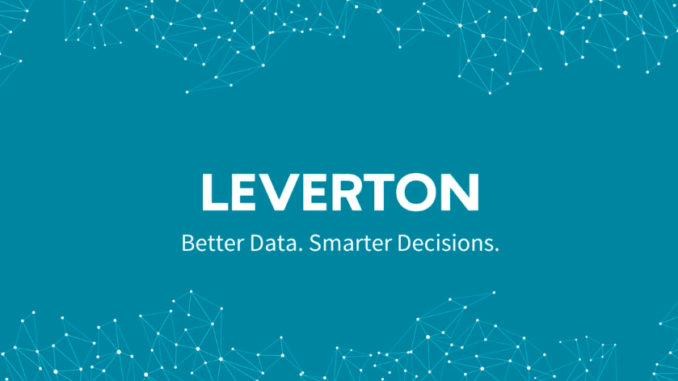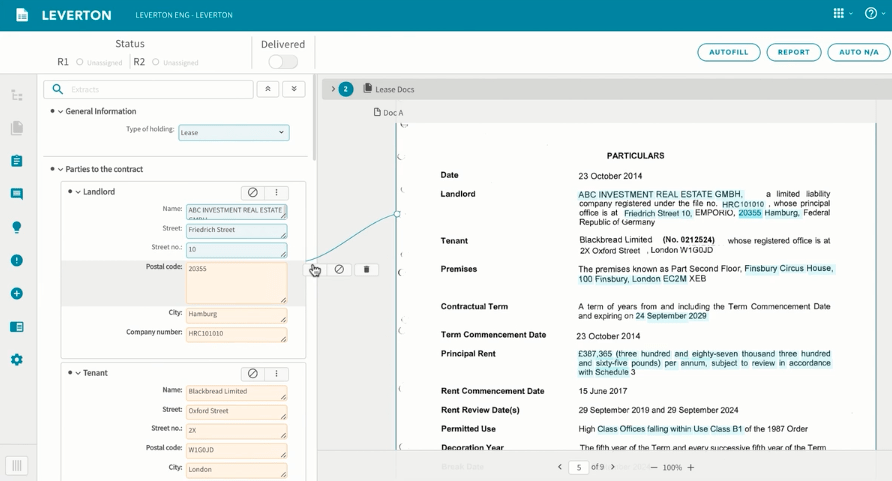
Leverton, the legal AI and proptech pioneer, is well known as a brand name to those in legal tech land. But, what the company is doing now, and where it is heading is not so well understood.
Artificial Lawyer caught up with Abhinav Somani, the company’s recently appointed CEO, to find out some more.
First thing to know about Abe, as he likes to be known, is that he is not your average techie. His LinkedIn profile describes him as: Entrepreneur, Investor, Musician. And with good reason.

Somani was a banking analyst at Rothschild; founded the largest Off-Broadway, New York, Bollywood dance production; and was VP for business development at smartShift Technologies, which provides enterprise level software automation tools. And, he DJs and produces music as a hobby.
He also spent time helping German tech companies develop their businesses in the US. And that is how he came to hear of Leverton, which was looking for growth beyond its original German home market.
Last year Leverton had a few key management changes and Somani, who worked closely with the entire team, took over as CEO. Now with someone with a very global perspective and with roots in the US at the helm, Somani is leading a new growth surge.
Somani notes that the company now has about 90 people, with five offices: London, New York, Dallas, New Delhi, and of course, Berlin, Germany.
But, geography is not the only way Leverton is expanding.
‘We were just real estate, such as focusing on leases, now we are cross-industry. We work with NDAs, loan agreements, all kinds of documents. And not just extraction either. We have expanded our analytics capabilities also,’ he says.
Somani states that Leverton is now at a new stage, a Version 2.0, one might say. And part of this has been aimed at making the company’s AI software the ‘middleware’ for enterprises, where the data extraction and analysis takes place.
But, has Leverton changed radically from its early days when it was known to make use of a considerable human element to complete review work for clients, i.e. in addition to whatever the NLP could find?
Somani says that they have moved away from offering human review services that are powered by technology. It is rather the opposite, where Leverton offers the software and affords clients the opportunity to do the human validation / review work themselves or via third parties that are in Leverton’s preferred provider network.
Artificial Lawyer asks if this mean that Leverton has reached a point where it no longer feels the need to ‘finish the job’ with human hands?
‘The situation now is that the accuracy level of Leverton has improved substantially (since it was first launched, back in 2012), but the need for human validation will always be there’ he stresses.

He notes that they can reach 95% to 98% accuracy levels in terms of extracting the sought after data points, when looking at an area they know very well: property title deeds. And that is pretty much the same as what a junior associate will achieve. Though, Leverton would do this in a few minutes, not a few hours.
It’s a classic example of legal AI seeing OK results initially, then with time and learning, eventually reaching levels of accuracy and confidence from the users in certain well-trodden use cases that whole segments of work are now effectively automated. Clients should still human-validate the work, but the same level of scrutiny for each data point may not be needed.
Somani adds that the real issue is ‘how many times a human has to touch the document to get the data out’ and be happy all the needed data has been successfully retrieved.
Even now that human touch level cannot be zero. There will still be some human review and checking. But, that human review can be reduced significantly. And that means lower costs and more efficiency.
‘Semi-automation is the way,’ Somani concludes.
So, where now for the company?
The company has been a fervent believer in partnerships, APIs and integrations, from data giant SAP to a variety of accountants and specialist consultancies (see story here). And that will continue.
Somani says they also want to get deeper into how companies manage their data. And on this point he gives Seal Software a nod for the work they are doing here with inhouse legal teams, procurement and sales groups among global corporates.
He points out that companies could be collecting 1,000 data points per contract, at least for the more complex agreements they make. But, companies are terrible at inputting data, and weak at document management. Companies don’t want to put staff hours into this work even if they have a DMS.
One might say that talking to companies about data analysis in a world where data is so badly stored and organised, or even looked at, may seem strange. But, AI can help here.
AI can help to extract this data from documents, then to sort it, help store it correctly and help to analyse it. I.e. if a company won’t give human resources to actually extract useful data from all of its thousands of contracts and other documents, then AI may well be the answer, or at least part of it.
In this respect Somani sees that the company will likely see more growth opportunities working with corporates, given the quantity of legal data that needs to be stored and sorted among the rapidly globalising Fortune Global 2000 businesses of the world.
So, to sum up. It’s fair to say several things about Leverton now.
First, it’s far more international. Even its London office has grown hugely since Artificial Lawyer turned up two years ago to the WeWork space on Gray’s Inn Road, which had literally one person working there. Today there are nearly 20 people in that office.
The NLP is better than it was and more accurate, and that has led to more self-service and also increased efficiencies.
And, the company is also seeing itself as part of a bigger world of doc review, not just property, along with an increased focus on corporates. In short, it’s thinking big.
All in all, interesting times for Leverton under their new leadership team and in today’s market there remains everything to play for.
—
If you would like to learn a bit more about what Leverton does, check out the short video below:
3 Trackbacks / Pingbacks
Comments are closed.